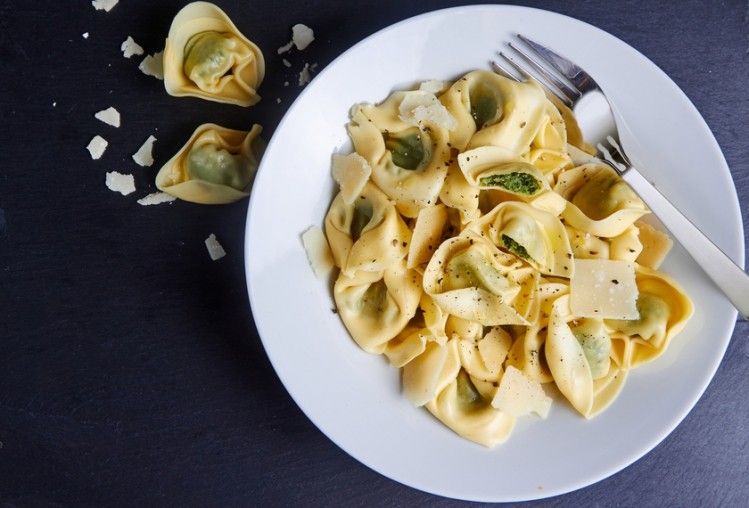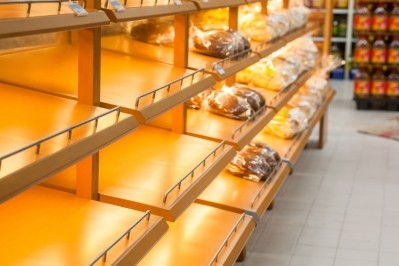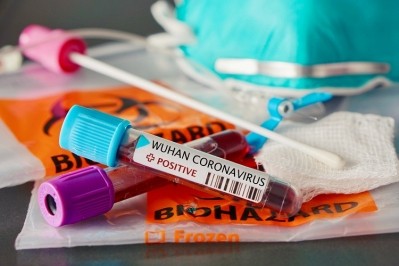Coronavirus: ‘Food excellence could fall into the eye of the hurricane’ Italian food sector warns

Italy has seen a sharp spike in cases of COVID-19. At time of press, 283 cases have been reported and seven people have died, according to Angello Borreli, head of Italy's Civil Protection Agency. This makes Italy the worst hit European country to date.
Northern Italy is the epicentre of the outbreak. Of the confirmed cases, 212 are in Lombardy, 38 in Veneto, 23 in Emilia Romagna, three in Piedmont, three in Lazio, two in Tuscany, and one case has now been confirmed in Sicily.
In a bid to contain the disease and stop it spreading, authorities have put at least a dozen towns on lockdown, closing schools, universities and businesses.
Prime Minister Giuseppe Conte announced the emergency plan to quarantine towns in the worst affected areas - 'Red Zones' - on Saturday evening. Travel to and from the outbreak areas is banned without special permission.
A ‘break’ on the food industry: Federalimentare
This disruption represents a significant threat to the performance of food makers in affected areas, according to industry association Federalimentare.
In a statement, the association’s president warned that the ‘closure’ of northern regions of the country could well weigh on Gross Domestic Product (GDP) – with the food sector left particularly exposed.
"The risk of a production blockade of the northern regions after the coronavirus alarm could impose a brake on the Italian manufacturing sector, including the food sector," Ivano Vacondio warned.
Vacondio said it is ‘still too early’ to assess the scale of the crisis but added food businesses are following events with ‘great apprehension’.
He warned the reaction to coronavirus could curb economic development in ‘the most productive part of the country’ and make the ‘arduous path to recovery that the whole system needs’ considerably more challenging.
Lombardy and Veneto are economically important areas for Italy, collectively accounting for 32% of GDP. Including Emilia Romagna, the three regions account for 41% of national GDP.
Federalimentare calculated that if GDP slows by -1% in these regions, it would hit national GDP and the country would likely miss OECD’s 2020 forecast of 0.3% growth.
"This is the impending macroeconomic risk of the current year, especially considering the heavy legacy of industrial production in 2019,” Vacondio said. Industrial production fell by -1.4% over the 12 month period, with the decline accelerating to -4.3% in December.
While the potential impact on Italy’s economy is noteworthy, Vacondio suggested that the food sector is particularly exposed to the fallout from COVID-19.
“Food excellence could also fall into the eye of the hurricane therefore [damaging] a whole sector that has so far proved to be [resilient] against the [depressed] trend of the rest of the economy.”
In 2018, Lombardy and Veneto accounted for 36% of Italy's food sector, according to Federalimentare’s figures. Across the three regions – including Emilia Romagna – regional production accounted for 52% of the sector’s total production.
Government support package to be ready 'within hours'
FoodNavigator understands that the Italian government is in the process of preparing a support package for business in the Red Zone - where production and regular business has been halted during the quarantine period. This is likely to include on-the-spot financial support as well as plans to ensure the 'immediate resumption of activity' when the crisis is brought under control.
In a document seen by FoodNavigator, Deputy Minister of Economy and Finance Laura Castelli explained: "We are working on the text of a new Decree Law that allows citizens and businesses who fall within the Red Zone to face this period of 'quarantine' without particular concerns in terms of tax obligations and more generally to allow the business world an immediate resumption of activity at the end of the isolation period.
"In these hours I have heard from all my colleagues in the Government, to ensure that the text of the Decree is as complete as possible. With the Ministry of Economic Development and the Tax Agencies we are refining the text, which will be ready in the next few hours to arrive in the Council of Ministers.
"Among the various measures, which will be in support of families and businesses, we will certainly include the suspension of the payment of taxes, bills and social security contributions. Minister [for Economic Development Stefano] Patuanelli met with the production categories for a discussion on the additional measures to be taken to protect the entrepreneurial fabric of the country."
Italian craft and SME union CNA Nazionale is pushing for a package of support to allow smaller manufacturers to weather the storm.
Gabriele Rotini, who is responsible for food and agriculture at CNA Nazionale, said the union is calling for the suspension of taxes; the suspension of payments for utilities (electricity, gas, water, etc.); the extension of credit including the suspension of mortgages, loans and insurance premiums; the suspension of pension contributions (INPS) and insurance premiums (INAIL).
Coronavirus and food security
A spokesperson for the Unione Italiana Food, another industry body, told FoodNavigator that its members are following official advice and cooperating with the authorities to support efforts to stop the spread of the disease.
"Companies associated with Unione Italiana Food have adopted all precautionary measures when requested and foreseen by the authorities for the containment of the spread of coronavirus. Many of them have also put in place additional specific measures, such as smart working, when possible, to increase the level of safety among their employees."
Local reports suggest that Unilever has been forced to close its plant in Casalpusterlengo after a worker at the site tested positive for COVID-19 and was hospitalised.
But despite widely distributed images of empty shelves in cities like Milan, food industry representatives appear confident that longer-term food supply will remain stable. CNA's Rotini told this publication that production outside of the Red Zone continues as usual - meaning that food shortages linked to panic buying are not likely to persist.
"The production facilities are all open, apart from those in the Red Zone, so there should be no concern for supplies. The rush to supermarkets to stock food is not likely to put on the risk the sustainability of the system. If the situation remains stable, the rush on stocks should fall within a couple of days, except [shortages of] fresh bread, fruit and vegetables, meat would persist."
Currently the country is not facing shortages of staples like pasta and rice, he continued.
However, Rotini warned that if the outbreak spreads across Italy, greater disruption could ensue. "If the coronavirus emergency continues across the country, in that case there could be a possible difficulty in securing food supply chain, mostly if certain companies were forced to close their factories. In that context there would be price increases."
Coronaviruses are a large family of viruses that cause illnesses, ranging from the common cold to the more serious Severe Acute Respiratory Syndrome (SARS) virus.
A novel coronavirus, such as COVID-19, refers to a new strain not previously identified in humans.
Common signs of infection include respiratory symptoms, fever, cough, shortness of breath and breathing difficulties. In more severe cases, infection can cause pneumonia, severe acute respiratory syndrome, kidney failure and in extreme cases death.
Ed: Article updated 25 February to include additional comment provided by Unione Italiana Food, CNA Nazionale.




















